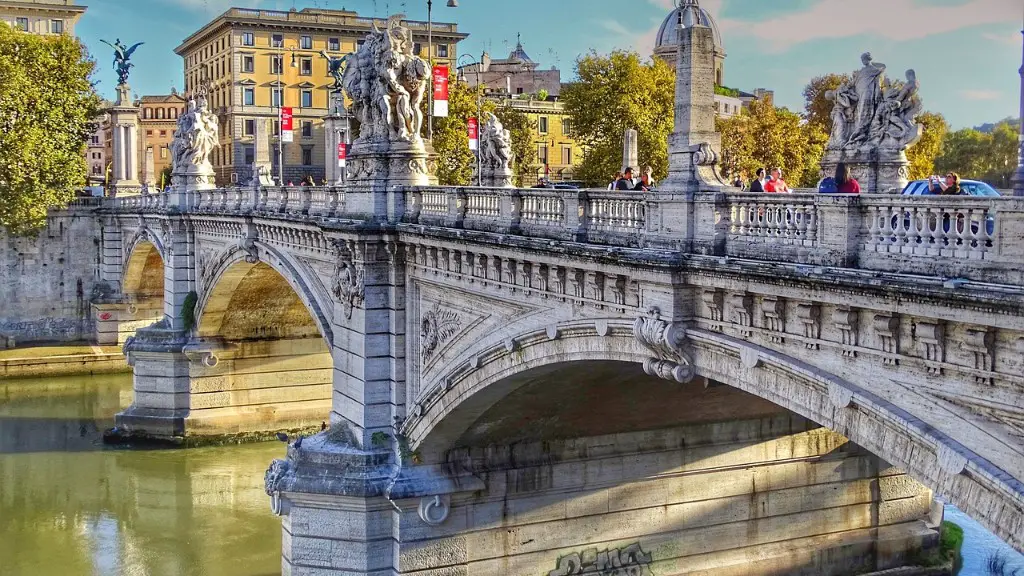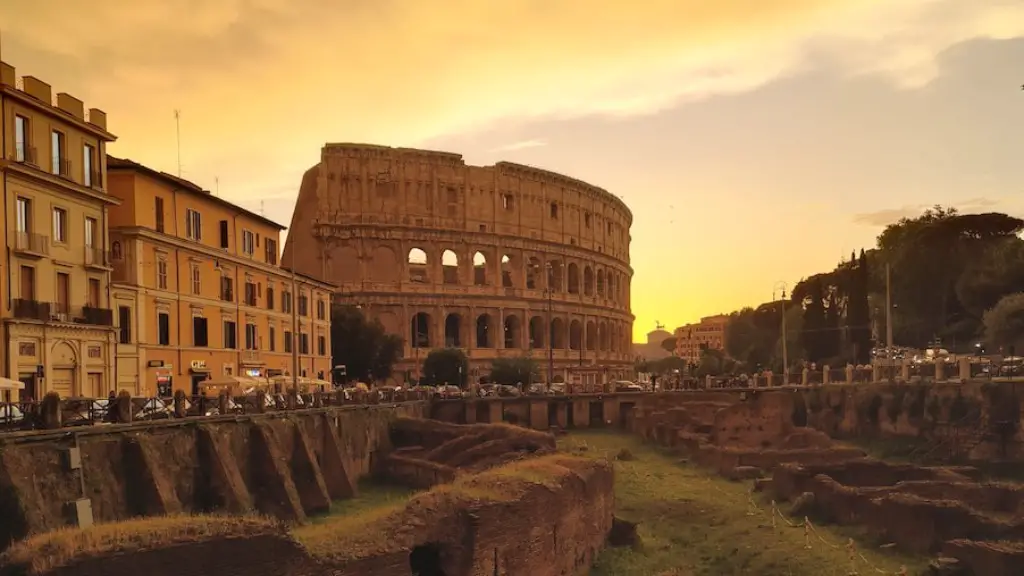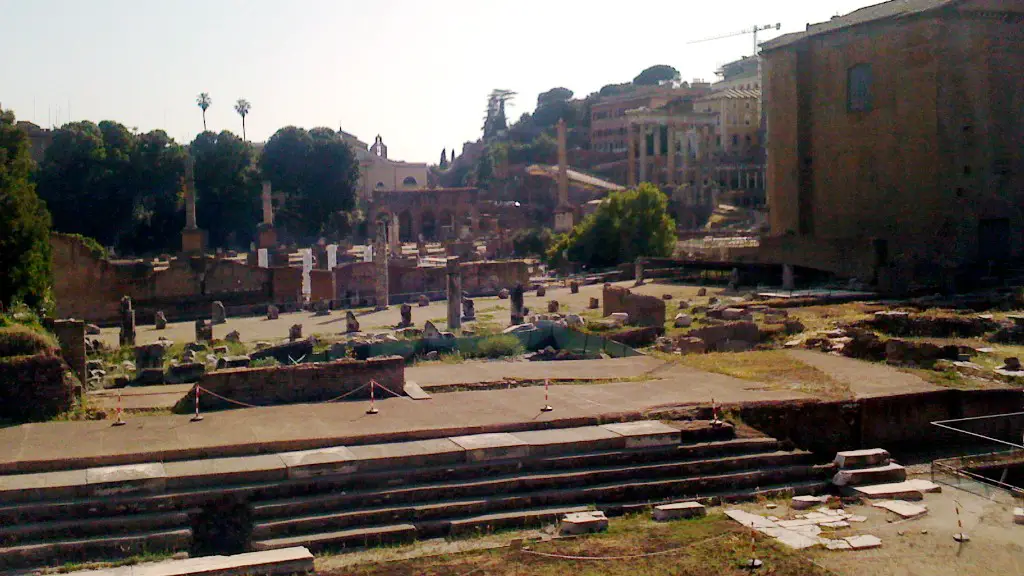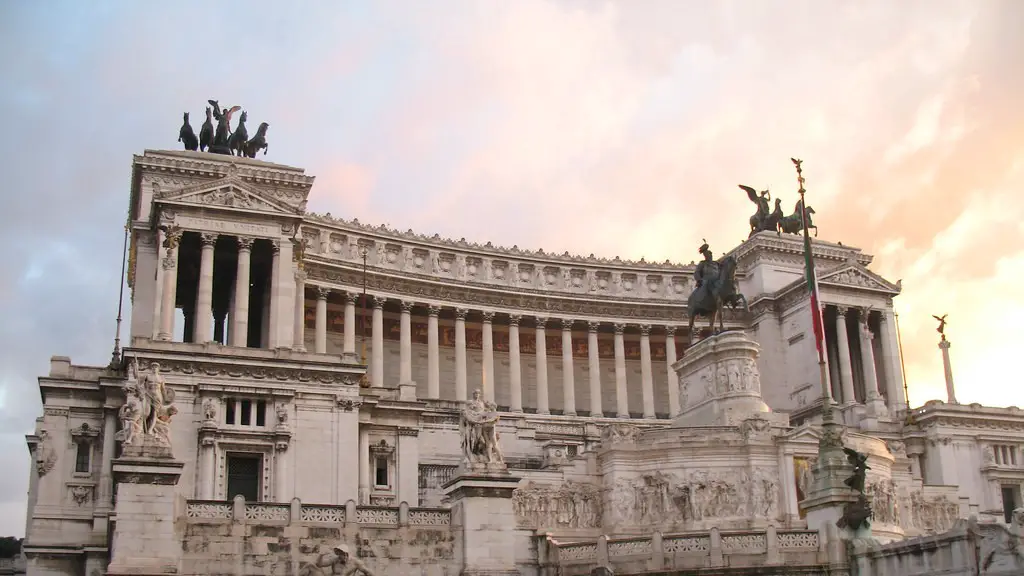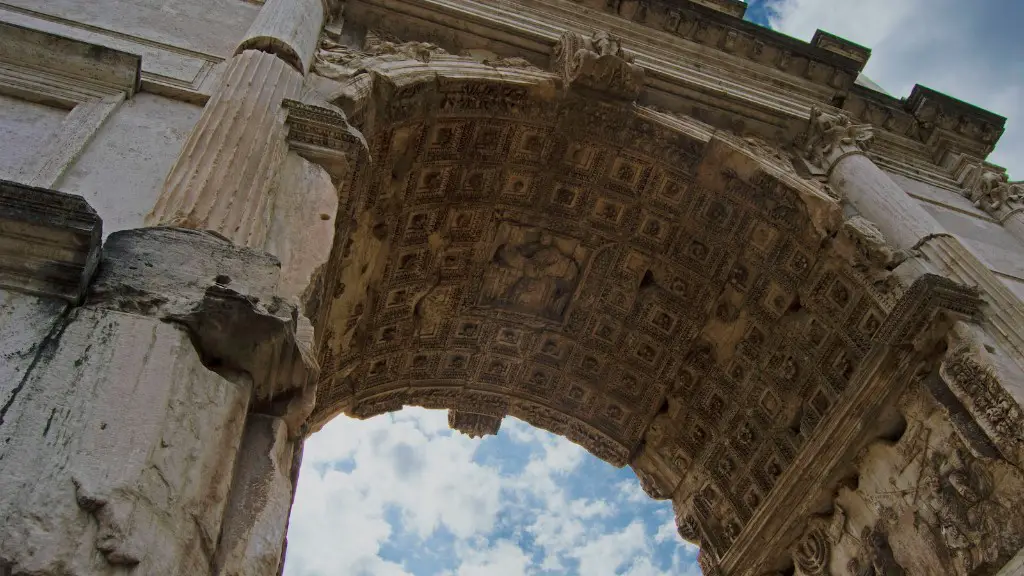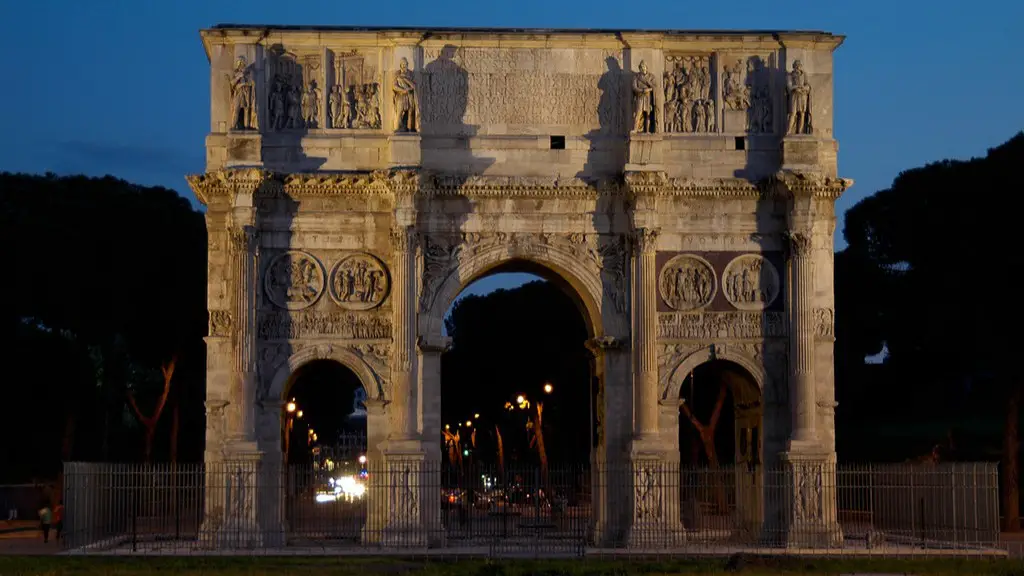What Were the Achievements of Ancient Rome?
The achievements of Ancient Rome are often seen as the cornerstone of modern Civilization. Ancient Rome had an exemplary legal and political system, unrivalled engineering and construction capabilities, an extensive trading network, and an organized military. These achievements made Rome one of the most powerful civilizations in world history, and helped it become a super power in its own right.
At its height, the Roman Empire ruled over a vast geographic area that included parts of Europe, North Africa, and the Middle East. The Roman Empire was built on the foundations of institutions, laws, and practices originally developed by the Roman Republic. Many elements of the Roman Republic, such as its emphasis on the rule of law and citizens’ rights, have been incorporated into modern systems of government.
The Roman Republic was known for its extensive trading network and its use of gold and silver coins as currency. These coins were used to pay merchants and military personnel, and to purchase goods. This system made commerce more efficient and increased the movement of goods across the Roman Empire. The coins were also used to pay taxes, thus allowing the Roman Empire to raise funds to build and maintain its infrastructure.
Roman engineering and construction capabilities were unrivaled. They built complex roads, systems of aqueducts for transporting water and the Sewer System of Rome. The Roman road system was built with the intention to link distant locations quickly, and influenced the layout of cities in the future. The Sewer System of Rome, which was installed in 312 BC, was a complex network of tunnels and aqueducts for carrying away waste and for draining water. This was a precursor to the modern-day sewage system.
Ancient Rome had an organized military and well-trained soldiers. Its legions used advanced techniques and tactics to defeat their opponents. The legionnaires were well-equipped with their well-designed swords, spears, shields, and javelins. The use of military stratagems and the tactics of controlling and defending a region were developed and maintained during the Roman Empire. In addition, the Roman engineers invented and refined siege engines, including ballistas and catapults. These enabled the Romans to take control of strategic areas.
The legal and political systems of the Roman Empire were another key achievement. It was through these systems that the power of the Senate, magistrates, and other governing bodies was maintained. This allowed the Roman Empire to become a unifying force in the ancient world, and gave it a profound influence on many modern systems of government.
Agriculture and Architecture
Ancient Romans were incredibly successful when it came to agriculture. They developed systems for multiple-cropping, fertilisation and irrigation which meant that whatever the weather and season, food could be plentiful. This also allowed them to have a larger supply of food for their large and growing population. The most impressive agricultural construction was the Appian Aqueduct, which was built in 312 BC to bring fresh water from lakes in the hills above Rome into the city.
Architecture was another area of development in Ancient Rome. Julius Caesar and Augustus both contributed to the rebuilding and development of Rome’s infrastructure. As part of their works they built temples, roads, bridges, aqueducts and gladiatorial arenas. Among the most impressive of these was the Colosseum, which began to be built in 72 AD, and is still in use today.
The Romans also developed new forms of architecture including the post and lintel structure, which allowed them to build large and impressive structures. The use of the arch allowed them to build even more impressive structures such as the Pantheon. This was the largest and most advanced dome in existence at the time and was constructed by Emperor Hadrian between 118 and 125 AD.
Law and Education
The strength of the Roman Empire also lie in its legal system, which served as the basis for many modern legal systems. The famous Roman Law was used to codify everyday life as well as ensure that justice was served. Not only did this ensure the civil justice of the people, but it also helped to keep the wealthy from gaining too much power, thus keeping the society egalitarian.
Although education was not a priority in Ancient Rome, it made significant progress in terms of providing opportunity for advancement. Students had the opportunity to study rhetoric, law and philosophy. Studying the humanities was seen as a way to become a respected member of the community. There were also various schools and academies where students could learn practical skills such as engineering and architecture. These provided important opportunities for those who were willing to work hard.
The education system at the time did not guarantee a fair distribution of knowledge. Rather, it created a merit-based educational system that allowed those who were promising and hard-working to succeed. This focus on meritocracy led to some of the most important intellectual developments in Ancient Rome and helped shape the foundation of modern education.
Science and Medicine
Ancient Romans were keen on developing their knowledge in science and medicine. During the Roman Empire, medicine was based on the Hippocratic system and focused on the power of herbs, diet and the use of natural resources. Physicians began to practice the concepts of professional medical care, such as providing medical advice and treatments to individuals.
In terms of science, the Romans adopted an approach similar to earlier Greek scientists by combining fact-finding with theory. This allowed them to gain a better understanding of the natural world and make advances in fields of mathematics, physics, astronomy and engineering. These advances made during the Roman Empire had a long-lasting influence on mankind.
Among the most famous Roman scientists was Cornelius Celsus, who made significant contributions in the fields of mathematics and engineering. He is best known for his encyclopedic work, De Medicina, which contained the most comprehensive compilation of medical knowledge of the time. Other important figures include Ptolemy, Galen, and Vitruvius, all of whom helped develop and refine scientific knowledge in their respective fields.
Entertainment and Art
The Romans were also successful in the area of entertainment. The most popular form of entertainment was the gladiator contests, which were the equivalent of modern-day sporting events. The colourful nature of these events drew large crowds, and it was not uncommon to find politicians and members of the aristocracy in attendance. Other forms of entertainment included theatre, music, chariot racing, and chariot displays as part of major national events.
In terms of art, many Roman sculptures still exist today, and a significant number of them have been preserved by the Romans themselves. The Romans had a great respect for the works of Greek sculptors, and strived to produce works of high quality. They produced statues and busts depicting gods, heroes, and celebrities, which have become iconic symbols of Roman culture.
The Romans also developed mosaic art, which consists of small images and tiles put together to create scenes or artwork. The most famous example of this is the 1,972-year-old mosaic of the Battle of Issus which depicts a battle fought between the Romans and Persians. These mosaics were used to decorate the floors and walls of both public spaces and private residences, and were often viewed as a form of social status.
Religion and Philosophy
Religion and philosophy were also important aspects of Ancient Rome. The official religion of the Roman Empire was polytheistic, and its gods and goddesses were seen as the protectors and guides of the people. Each city and region had its own unique cults and gods, and the people believed that these deities had the power to influence the everyday lives and prosperity of the people.
Philosophy was another area of development in Ancient Rome, and the most significant figures from the period include Cicero, Seneca and Marcus Aurelius. These thinkers concerned themselves with ethical and moral questions, and their writings include significant contributions to our understanding of virtue and morality. Their works continue to influence our thinking and our approach to ethics today.
The influence of Ancient Rome continues to be felt today, and its achievements continue to shape our lives. The evidence of its legacy can be found all around us, and its achievements continue to serve as a source of inspiration and admiration.
